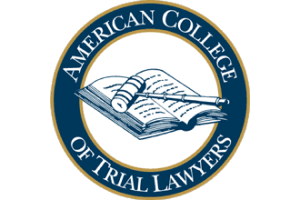Who Get Results
Proving the Car Accident Case
Being injured in a car accident by itself does not entitle you to compensation. You must prove that the other driver was at fault. As Fairfield Car Accident Lawyers we use two different bodies of law to do that – common law and statutes.
If a driver violates a statute when driving a car, that is called “negligence per se”. You simply have to prove that the driver violated the statute, and they are automatically at fault. There are dozens of statutes that govern the rules of the road. All of us that drive know what they are, although we may not know their number. For example, there is a statute that says a driver must stop for a red light. So, if we can prove that the driver did not stop at the red light, then they are automatically responsible.
Violating certain statutes is considered so serious that the jury is allowed to double or triple any verdict in your favor in order to punish the defendant. Examples of statutes which if violated can result in punitive damages include driving while intoxicated or driving while using a handheld device. As Fairfield Car Accident Lawyers we use the threat of punitive damages to maximize your recovery.
After an accident, a police officer will frequently issue a ticket to an at fault driver who has violated a statute. People assume that the fact that officer issued a ticket determines that the driver is at fault, but that is not true. A jury is not allowed to be told anything about the ticket as it is the job of the jury to determine fault, not the police officer.
The second body of law we use as Fairfield Car Accident Lawyers to prove your case is called common law. Common law has developed over decades, and it requires a person to use “reasonable care” when operating a motor vehicle. Common law is far murkier than the bright line of violating a statute. What is reasonable to one person may not be reasonable to another. For example, common law requires people to keep a proper lookout when driving a car. But what does that mean? The court tells the jury that it is, “the care that a reasonably prudent person would use in the same circumstances”. The jury must consider what was known or should have been known by the driver. The more dangerous the circumstances, the higher the degree of care is required.
In a car accident case, the insurance company for the other person very well may blame you for the accident. They may say that you violated certain statutes or did not drive reasonably. If the case is in suit, the other side may file with the court a document entitled “Special Defenses”. In the Special Defenses they will identify the statutes they believe you violated or the ways that you did not act reasonably.
The reason those special defenses are so dangerous to your claim is that it is a way for the insurance company to reduce your ultimate recovery. For example, if because of the special defenses the jury was to find you ten percent responsible for the accident, your ultimate recovery would be reduced by 10 percent. If the jury was to find you 50 percent responsible for the accident your recovery would be reduced by 50 percent. If the jury were to find you more than 50 percent for the accident you lose and would receive nothing at all. Many times, these special defenses are utterly baseless, but the insurance company will throw them against the wall and see if they stick.
Call us today. We are available to discuss your car accident and the ways that we can prove that the other driver was responsible.













